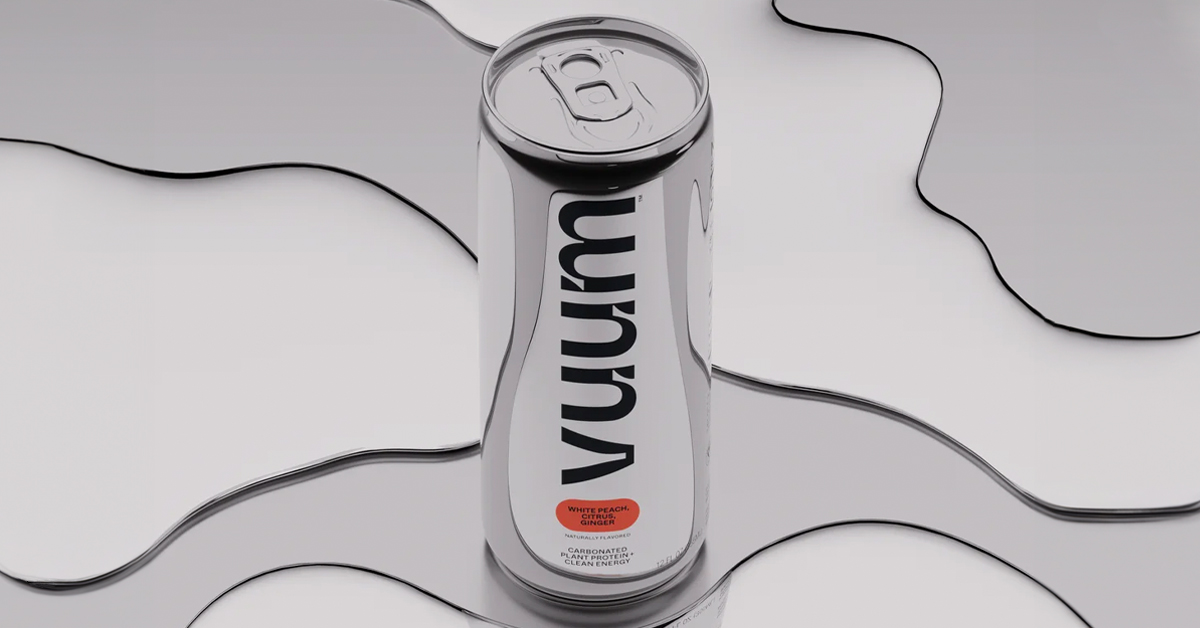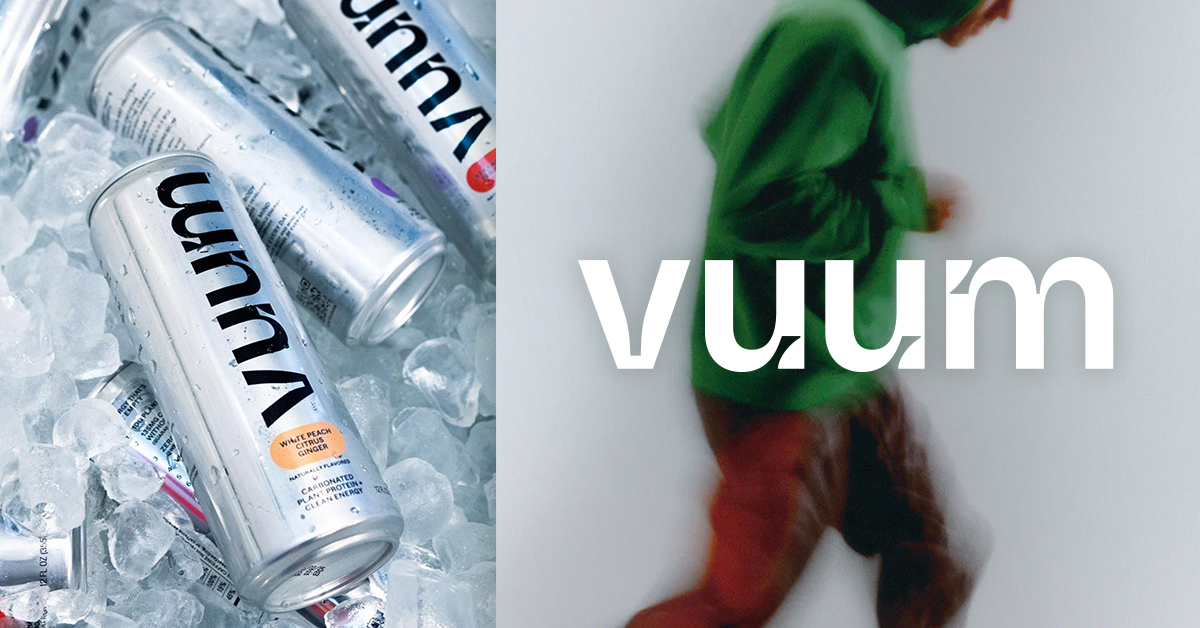It’s a protein drink. It’s an energy drink. And its founders believe it can be a superior alternative to both categories leading brands.
Founded by a pair of University of Southern California graduates, Los Angeles-based startup VUUM produces a line of functional sparkling drinks made with 135 mg of caffeine from guarana seed and green tea, 10 grams of pea protein, Vitamins B12 and D, and amino acids such as L-Theanine, L-Leucine, L-Valine, L-Citrulline and L-Carnitine. Each 12 oz. can contains 50 calories and is sweetened with stevia. VUUM is available in three flavors – Berries, Strawberry Tangerine and White Peach Citrus Ginger – and retails for $4.49 per can.
The brand is now rolling out to Erewhon and Central Market stores in Southern California, and is also available online direct-to-consumer and with Amazon. This month VUUM will also partner with fitness chain Barry’s Bootcamp to sell the drinks at an Aspen, Colorado pop-up location and later this Spring the brand expects to add Harmons stores to its footprint.
VUUM was founded by Matt Forsey and Valentino Sinacola while both were students at the University of Southern California. Both had been athletes in high school – Sinacola had pursued competitive tennis and Forsey played football – but felt there was a lack of truly healthy protein and energy options on the market.
In particular, the duo were frustrated with the tendency for protein drinks to be designed around heavy shake and meal replacement formats. In addition to adding extra calories and ingredients, most protein drinks, Forsey said, are only intended for post-workout occasions and with VUUM they wanted to introduce a lighter option that could also be consumed as a preworkout option, during workouts or throughout the day.
“That was always the norm with protein; after working out, chugging a chocolaty-vanilla, thick, indulgent shake that was chalky – it was very unpleasant,” Sinacola said.
While by no means common, sparkling protein drinks have been tackled by entrepreneurial brands in the past. Fizzique, a line of sparkling protein waters containing 20 grams of protein per 12 oz. can, launched in 2018; however the company’s website is now offline and its social media hasn’t been updated since last spring. There’s also Circle Bev, which initially debuted a Sparkling Protein line in cans in 2020, although the brand appears to have repositioned its portfolio as “Sparkling Collagen Water,” which still contains 18 grams of protein per serving.
Beyond the traditional protein and energy drink spaces, protein and coffee has also been a popular combination in recent years. Brands like Super Coffee and Slate Chocolate Milk have built lines around the blending of caffeine and protein, while others such as High Brew and STOK have had their own past cold brew offerings with added protein.
With energy drinks, despite the rise of better-for-you performance energy brands in recent years, Forsey and Spinacola felt that most “clean” energy drinks on the market were not actually healthy and only provided short-term boosts of energy.
“Instead of using caffeine anhydrous, a clean energy company might use green tea or another plant-based caffeine source, but we don’t think that goes far enough,” Sinacola added. “We need to have all of the ingredients from the acids to the sweeteners to the flavoring really be clean and healthy and really be plant-derived.”
While VUUM isn’t the first brand to blend protein and energy together, it is differentiated in its position as a sparkling RTD beverage. But energy, the founders say, is not the core focus and future innovations and line extensions are likely to build around the lighter protein format.
Thus far, VUUM has been financed by individual angel investors and the company has been working to build out its day-to-day operations team. This month, the brand brought on former McKinsey business analyst Isabel Washington as its director of growth and partnerships.
Bringing in an experienced team is also important for the first-time entrepreneurs. At USC, Forsey studied real estate development and public policy, while Sinacola majored in design with a minor in marketing.
Their diverse backgrounds have helped influence the philosophy behind the brand. According to Sinacola, his design experience has heavily guided the visual look and feel of the brand.
Long term, the goal for VUUM is to become a lifestyle brand, and Forsey and Sinacola intend to target the New York market and the Los Angeles fitness community, in which they participate, to establish that identity. While the stretch goal is to eventually launch VUUM into convenience stores, the founders are hoping to sell into various gym and fitness accounts in addition to natural channel retailers.
“We really didn’t even know if this was going to be possible at the beginning,” Forsey said. “So it was a lot of faith, and just really believing in the idea, and I think having a vision.”

